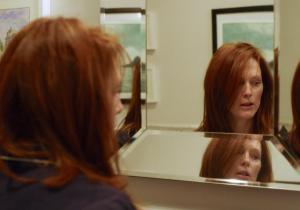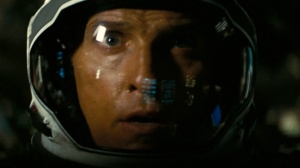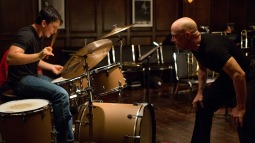“Still Alice” directed by Richard Glatzer and Wash Westmoreland, is one of the most affective and illuminating movies ever made about mental disease. Following a woman diagnosed with Alzheimer’s disease, the drama never feels anything less than real. It ultimately explores what it means to be human – our strengths and flaws, revealing the resilience of the human spirit. Without flinching it shows how a person becomes disconnected from life, and the effects it has on those surrounding her.This isn’t a depressing slog; the movie is brutally honest and retains a feeling of hope throughout.
Alice Howard (Julianne Moore) is a renowned doctor of human memory, and is seen as a successful smart individual. She has a successful (if un-emotive) husband John (Alec Baldwin) and two children, living in oblivious bliss up to the point. During the early progression of Alice’s Alzheimer’s disease, she begins to forget friends’ names and certain words. Becoming diagnosed (finding out through her own resilience) she lets her family in on it – both her daughters are grown adults looking for stability. Suddenly forced out of her fast moving lifestyle, she notices both the positives and negatives of it.
Not only is this movie about a disease, but it’s also about life and the fragility of it all. We can see Alice fighting to stay present (using her intelligence to her advantage), trying persevere against diminishing odds. There isn’t much plot to speak of – the family has difficulties coming to terms with her debilitation, tending to treat Alice less (she’s more perceptive than others think). The emotional moments work because it feels watching real life, not performances or acting (in traditional sense). The director Richard Glatzer has a debilitating disease ALS (inability to use muscles) himself, granting the feature a lived-in quality.
This is a movie that makes you appreciate life because it shows how easily and fast it can leave a person – showing how things we thought were important – weren’t in the long run. It goes beyond character drama, enlightening on how important memories and personality are (the things that make us human). Moore doesn’t act so much as live the disease, never revealing signs of theatrics or dramatic strains. It’s amazing how she captures (unaffectedly) the stages of the disease, and able to indicate that the real Alice is still there. Alex Baldwin gives the best performance of his career, resonating as the husband trapped by worsening circumstances.
“Still Alice” is a brilliant film, full of emotion and warmth – that makes you feel emotionally alive. This could have been depressing and overbearing but it ends up being life-affirming, being true to Alice’s humanity and strong soul. This is hefty stuff thematically, but it culminates into one of the most emotionally stirring films I’ve seen. The emotions work because it feels like we are watching everyday life. Effective because it stays true to a deep subject that will make you see life with a new pair of eyes.
(4 out of 4 stars)
(January 16, 2015)


![birdman-film-02[1]](https://patscrap.files.wordpress.com/2015/01/birdman-film-021.jpg?w=300&h=200)
![nightcrawler-movie-review[1]](https://patscrap.files.wordpress.com/2014/11/nightcrawler-movie-review1.jpg?w=279&h=156)
![two-days-one-night02[1]](https://patscrap.files.wordpress.com/2014/11/two-days-one-night021.jpg?w=263&h=174)


![gone-girl-3[1]](https://patscrap.files.wordpress.com/2014/10/gone-girl-31.jpg?w=278&h=207)
![guardians-of-the-galaxy-movie-wallpaper-25[1]](https://patscrap.files.wordpress.com/2014/09/guardians-of-the-galaxy-movie-wallpaper-251.jpg?w=300&h=172)
![hero_GetOnUp-2014-1[1]](https://patscrap.files.wordpress.com/2014/09/hero_getonup-2014-11.jpg?w=300&h=125)